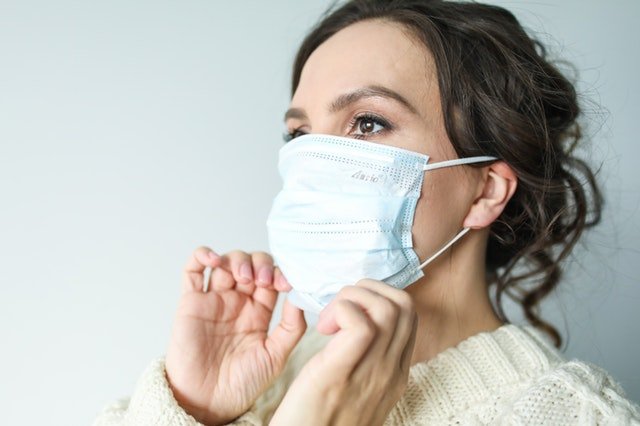
In a new study, researchers found that surgical masks may help prevent infected people from making others sick with seasonal viruses, including coronaviruses.
They found in laboratory experiments, the masks strongly reduced the amounts of various airborne viruses coming from infected patients.
The research that could help settle a fierce debate spanning clinical and cultural norms.
The research was conducted by a team at the University of Maryland and elsewhere.
The question of masks has roiled society as well, with some retailers refusing to let employees wear them for fear of sending negative signals to customers, and cases of slurs and even physical attacks in the United States and elsewhere against Asians or Asian Americans who were wearing masks, a measure some consider a necessity during a disease outbreak.
The study, conducted prior to the current pandemic with a student of Milton’s colleagues on the Faculty of Medicine at the University of Hong Kong, does not address the question of whether surgical masks protect wearers from infection.
It does suggest that masks may limit how much the infected—who in the case of the novel coronavirus often don’t have symptoms—spread diseases including influenza, rhinoviruses and coronaviruses.
The team had demonstrated in a 2013 study that surgical masks could help limit flu transmission. However, they caution that the effect may not be as great outside of controlled settings.
Nevertheless, the chance they could help justifies taking a new look at whether all people should be encouraged to wear them when they venture out of their houses to stores or other populated locations during the current COVID-19 lockdown.
Previous studies have shown that coronavirus and other respiratory infections are mostly spread during close contact, which has been interpreted by some infectious disease specialists to mean that the disease could spread only through contact and large droplets, such as from a cough or sneeze—a message that has often been shared with the public.
The current study (along with earlier ones) shows, by contrast, that tiny, aerosolized droplets can indeed diffuse through the air.
That means it may be possible to contract COVID-19 not only by being coughed on, but by simply inhaling the breath of someone nearby who has it, whether they have symptoms or not. Surgical masks, however, catch a lot of the aerosolized virus as it’s exhaled.
The team recruited 246 people with suspected respiratory viral infections. They compared how much virus they exhaled with and without a surgical mask.
The found in 111 people infected by either coronavirus, influenza virus or a rhinovirus, masks reduced detectable virus in respiratory droplets and aerosols for seasonal coronaviruses, and in respiratory droplets for influenza virus.
In contrast, masks did not reduce the emission of rhinoviruses.
Although the experiment took place before the current pandemic, COVID-19 and seasonal coronaviruses are closely related and may be of similar particle size.
The team says the ability of surgical masks to reduce seasonal coronavirus in respiratory droplets and aerosols implies that such masks can contribute to slowing the spread of (COVID-19) when worn by infected people.
The lead author of the study is Dr. Don Milton, a professor of applied environmental health in the School of Public Health.
The study is published in Nature Medicine.
Copyright © 2020 Knowridge Science Report. All rights reserved.



